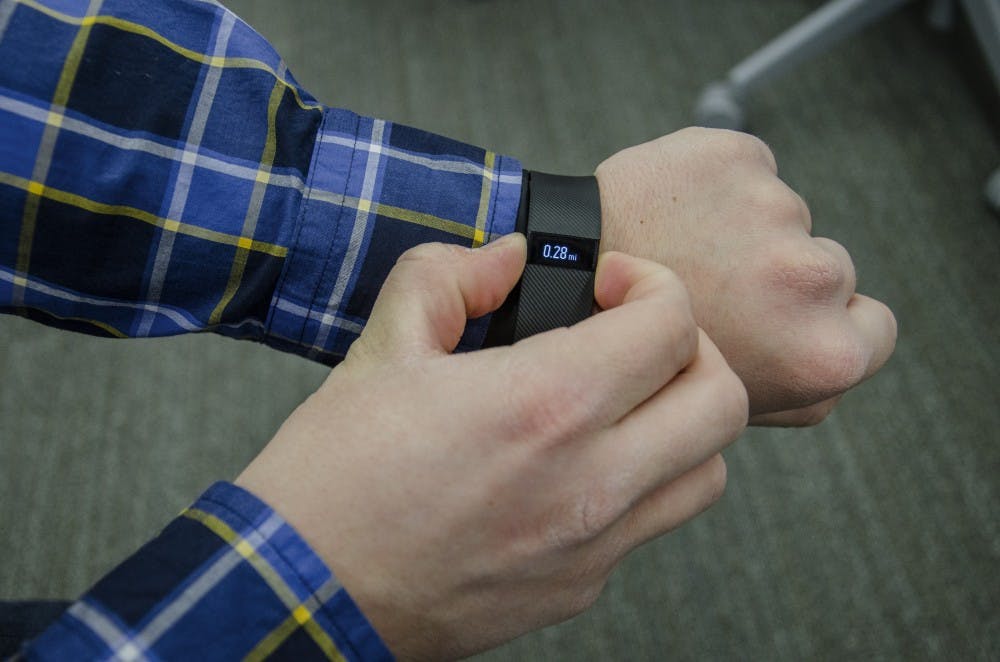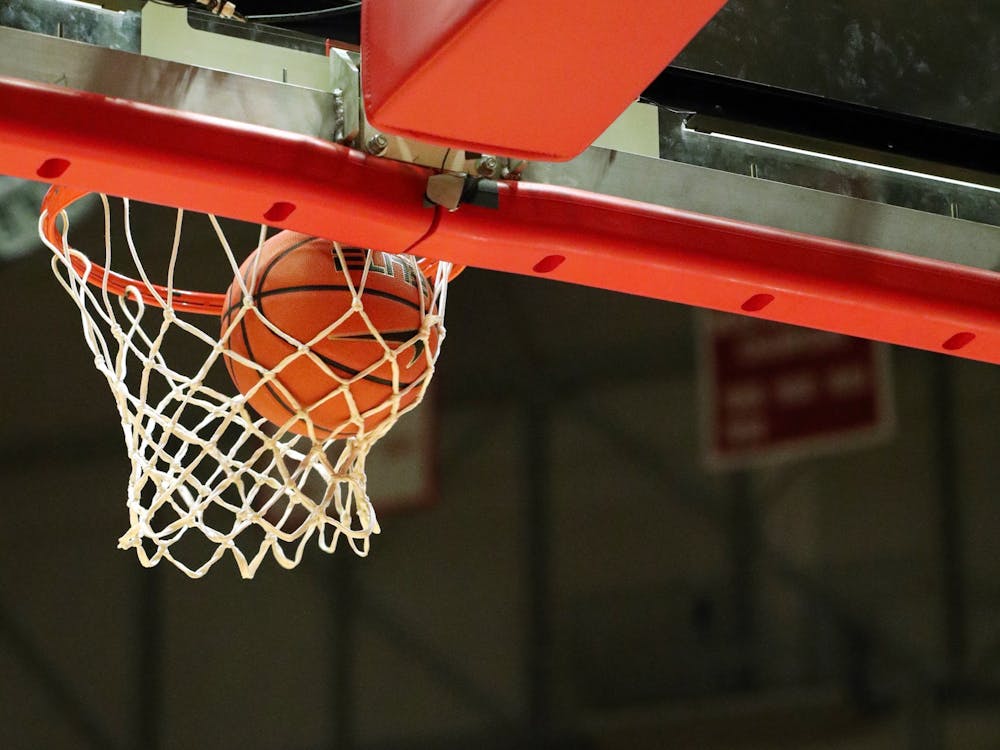Wearable fitness trackers, such as the popular Fitbit, aren't always accurate, as a Ball State study found. But since earlier this year, the Fitbit company has been facing a lawsuit due to these inaccuracies.
Ball State's study, released from Ball State’s Clinical Exercise Physiology Program, found activity trackers tend to underestimate steps — from 20 to 90 percent — for lifestyle activities such as cleaning, sweeping or picking things up around the house.
An underestimation of a workout seems better than the alternative, but that's not what the Fitbit company is facing a lawsuit for.
Along with the inaccuracy in the counting of steps, another study done by researchers at Cal Poly Pomona says Fitbit's heart rate calculations are inaccurate as well.
The study said the heart rate technology currently available for the trackers does not provide a valid measurement of a user's heart rate and, especially during high intensity exercise, cannot be used to provide a meaningful estimate of their heart rate.
However, Consumer Reports tested the heart rate accuracy of the Charge HR and Surge after the initial lawsuit was filed in January and gave both products an “excellent” rating.
The lawsuit, filed the Bylieff Cabraser, Heimann and Bernstein law-firm, calls the Fitbit devices defective. It was filed on behalf of people who bought these Fitbits specifically for the heart rate detecting technology and were disappointed to find it didn't seem accurate.
According to the firm's press release, Fitbit customer and plaintiff Kate McLellan tried other courses of action before reaching out to create a lawsuit.
“Fitbit’s ads made it clear that that is precisely what the Heart Rate Monitors are supposed to do. But in my experience, they do not, and when I complained to Fitbit, they refused to refund my money," McLellan said. "I brought this case because the Fitbit Charge HR that I bought does not accurately and consistently track my heart rate during intense exercise, and because Fitbit refused to stand behind its promise."
The class-action lawsuit argues specifically the "PurePulse technology," used to measure heart rate, is not accurate, like the study says, but it also doesn't do it as well as the company's marketing material promises, a claim the Fitbit company denies.
A spokesperson from Fitbit said that they believe that the study used in the lawsuit is biased, and that it doesn't provide exact evidence.
"[The study] lacks scientific rigor and is the product of flawed methodology," the spokesperson said. "It was paid for by plaintiffs’ lawyers who are suing Fitbit, and was conducted with a consumer-grade electrocardiogram – not a true clinical device, as implied by the plaintiffs’ lawyers."
According to Fitbit, their research team researched and developed PurePulse technology for three years prior to introducing it to market and continues to conduct internal studies to test the features of our products.
The technology is used in the more expensive models of the device — the Surge, Blaze and Charge HR.
The firm is using the latest research as a basis for the lawsuit, and even created an amended complaint on May 19 with the study as evidence.
Cal Poly Pomona researchers Edward Jo and Brett A. Dolezal tested 43 healthy subjects with the Fitbit Surge and Charge HR in "structured laboratory-based and less structured free-living exercise tasks."
The subjects, both male and female, were hooked up to a previously validated and calibrated heart rate measurement system and were also using the Fitbit Charge HR and the Fitbit Surge.
The subjects were assigned to perform exercise tasks that were reflective of activities presented in Fitbit advertisements, such as a self-paced jog, jump roping and jogging on a treadmill for five minutes each while heart rate data from the three devices.
The study said during moderate to high intensity exercise, the Charge HR recorded a heart rate that differed from the validated machine by an average of 15.5 bpm, and the Surge recorded a heart rate that differed from the validated machine by an average of 22.8 bpm.
Ball State's Alex Montoye, a clinical exercise physiology professor who led the first study, previously said whether consumers are using a high-end tracker like those being addressed in the lawsuit or more basic ones that his research analyzed, the technology is the same and will produce inaccurate results.
However, he said they still get people moving and can be a helpful motivational tool.





